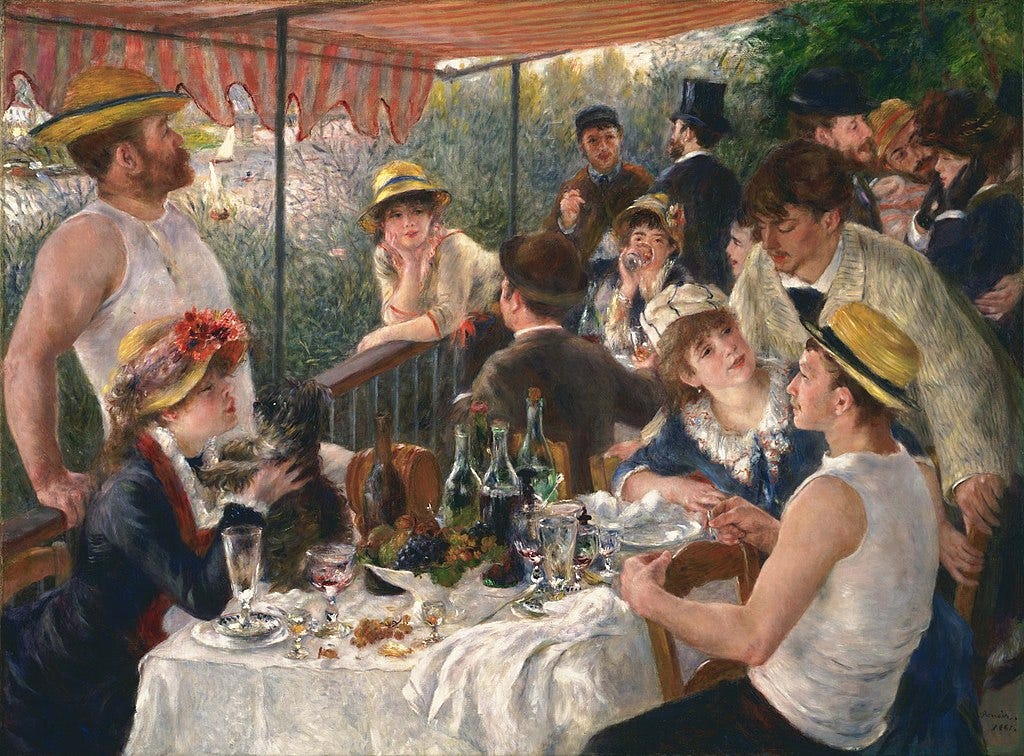Where People Meet
The top lesson I learned as a Discourse editor? Ideas matter, but people matter more

As the Discourse editorial team determines its next steps, we hope you’ll follow us for new content and updates about what’s to come. You can click here to subscribe.
Today marks the end of an era—the end of Discourse magazine as we know it. And I don’t feel fine: To say I’m heartbroken is truly an understatement. Being a Discourse editor has been the most creative professional position I’ve been in in my entire career, allowing me the freedom to pursue ideas and thoughts down many delightful rabbit holes. I’m endlessly proud of what we’ve been able to create and publish over the past few years, and knowing that our time doing that at the Mercatus Center is coming to a close makes me extremely sad. What we have done here matters, and there’s no taking away from that.
But there’s one thing about Discourse that matters like no other: While Discourse has always been a magazine of ideas, it’s really about the people.
One thing I’ve always loved about editing for Discourse is how I get to pick the brains of great thinkers who are truly experts in their fields. It’s kind of like going to a professor’s office hours: I get to ask smart people questions, and they in turn put their hearts into explaining why their chosen issues matter. But what’s been so delightful is developing such strong connections with them over my three years with the magazine. Our Discourse authors have turned into my trusted advisers, lunch buddies, confidants and friends. We’ve become brothers and sisters in arms in this great effort to keep discussion and respectful debate alive when those in power seem to be doing everything they can to thwart these things.
And of course, there are my closest colleagues, my fellow editors, David Masci and Christina Behe. We’ve been Discourse’s small-but-mighty editorial team, the “three musketeers.” They are my family, and they always will be. Our editorial meetings have been famously long, often stretching to far past an hour—but it was because we’ve enjoyed each other’s company so much. I’ve never imagined a team that could care so much about one another—about what we think and bring to the table work-wise, but also about who we are as individuals.
I’ve felt so able to be myself, and that in turn has helped me become a more confident version of me. I remember one time very early on in my time at Discourse, I brought an article idea to David, something I thought would be good to find an expert to write about. And I’ll be honest, as the words escaped my mouth, I steeled myself for pushback and criticism—not because of David, but because of my own past experience with less-than-encouraging team leaders. Imagine my surprise when David not only liked my idea, but encouraged me to recruit authors and develop a Discourse series around the idea. Spearheading the development of this series—on historic preservation—became one of my proudest moments as an editor, and it never would have happened without the support of the two best colleagues a person could have. I am so very thankful for them, and until we are colleagues again, I am very happy that I can call them close friends.
This is what Discourse (the magazine) and “discourse” (the very concept) are all about: talking to each other, getting to know each other’s thoughts and motivations, learning how to communicate about how to make our country and world better, caring about one another and our future together. The loss of a media space where we can do those things is surely a loss for a healthy and functioning society.
Some will say that in the media world, artificial intelligence will be able to take the place of human discussion, that magazine articles and essays should ultimately be written by machine and that nothing will be lost in the process. I couldn’t disagree more. Humans—writers, authors, thinkers—are unpredictable, and that is a virtue, particularly if we value creativity. People are smart and haughty and messy and late on deadlines and shocking and caring and infuriating and beyond amazing.
I am mystified by the capabilities of the human mind, though I understand that in all likelihood, many of those will be ultimately matched by AI. But it is the capabilities that can’t be matched—and even some of the smartest folks in the AI space believe that those exist—that are most fascinating to me. AI sentience is far from a foregone conclusion, and the emotional side of being human is an unsung hero in essay writing. Essays are not written just to inform, but to make the reader feel—and certainly, our writers have done that for me. I have learned, yes, but I have also learned why so many things in our lives matter and felt the passion authors feel right through the laptop screen. I don’t believe that will ever be something a machine can match.
I have loved getting to do this work. Thank you for allowing my colleagues and me the opportunity to do it. Working with such wonderful authors and colleagues has done so much more for me than scratching an intellectual itch. It’s been the kind of work that renews your faith in humanity—and makes you believe in it more than ever.


